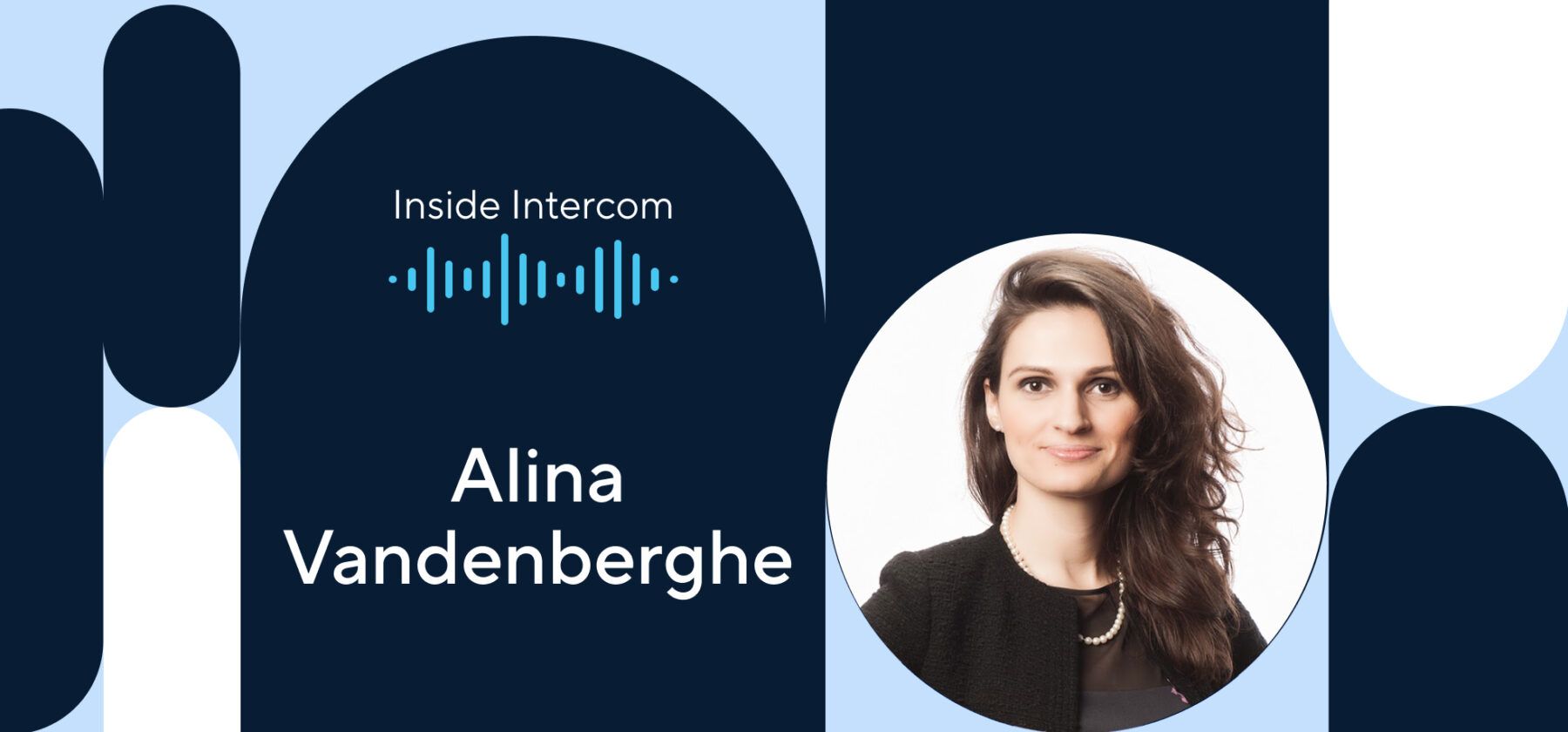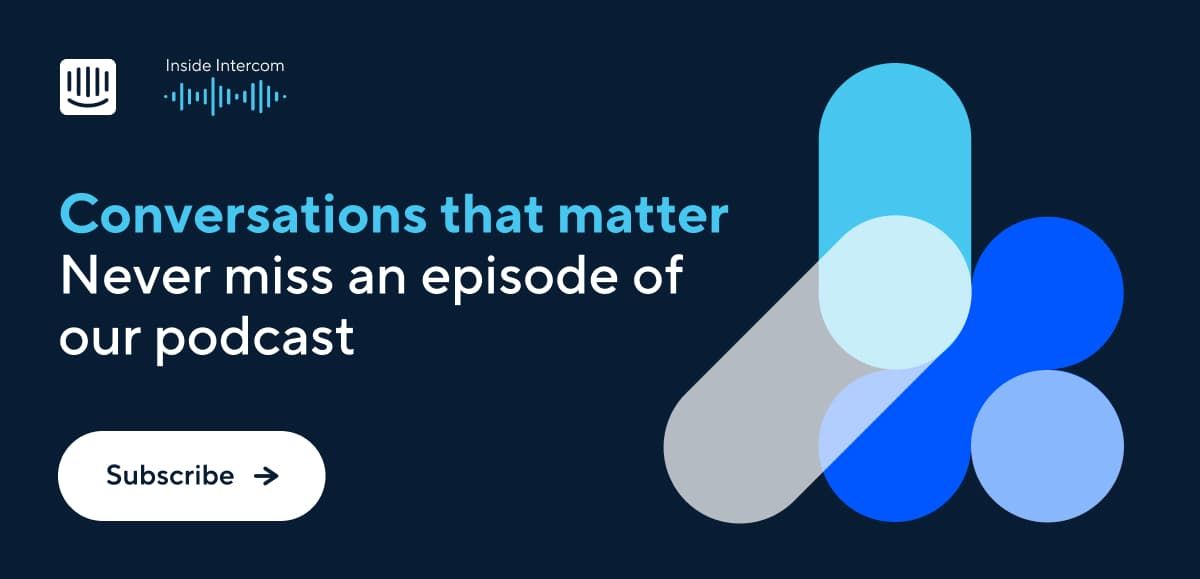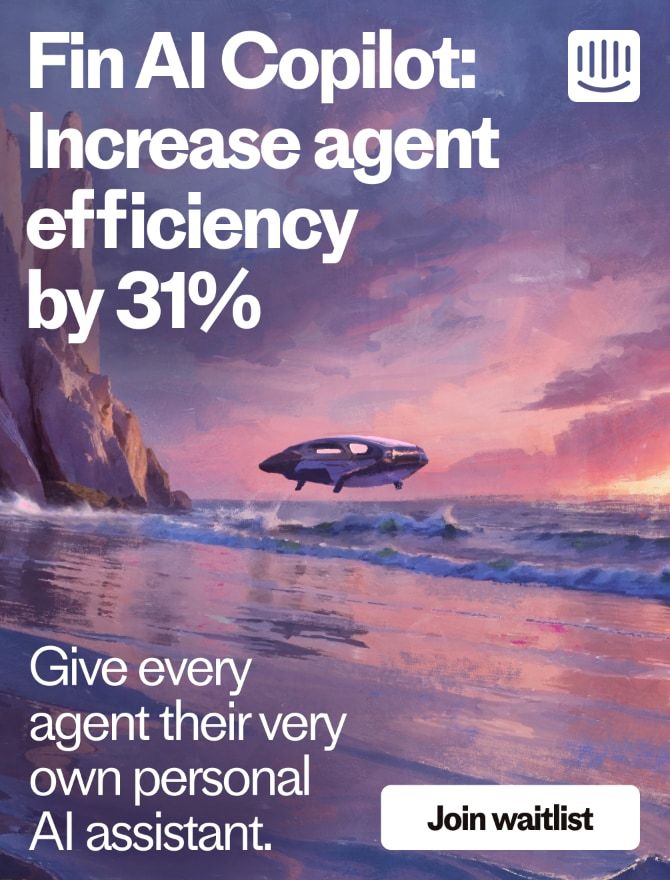
Chili Piper’s co-founder Alina Vandenberghe on bootstrapping your way to success
From finding the first customers to having no choice but to go remote, bootstrapping is a challenge for any entrepreneur. What does it take to grow a new business in a competitive market with such limited resources?
We talk a lot about scaling when there’s VC funding involved, but bootstrapping is a whole other game. When there’s no outside capital flowing in to help you grow quickly, you need to be scrappy, ruthless in your priorities, and, let’s be frank, have a high risk tolerance and unwavering perseverance to pick yourself up back up again, and again, and again.
Today’s guest has been bootstrapping for most of her life. Alina Vandenberghe is the Co-Founder and Co-CEO of Chili Piper, an inbound conversion software that helps sales teams automatically schedule appointments and instantly turn leads into qualified meetings.
Growing up in Romania, Alina built her first company even before enrolling in high school to help pay for her studies. She moved to the US after finishing her engineering degree and worked her way up the ladder, building mobile products across companies such as Reuters and Bloomberg. At the time, she pictured herself as the future CEO of a Fortune 500 company, but as she grew more involved in corporate politics, she realized it wasn’t for her. Alina was a builder, not a politician.
In 2016, she created Chili Piper with her husband Nicolas and poured in everything she had learned over the years. Although she was a product manager, she’d experienced sales first-hand growing up and had spent many hours studying revenue teams. She had a deep understanding of their processes and pain points and knew how to build software that would help them thrive. It was only a matter of sticking the landing. And that’s exactly what she did. In the past two years, Chili Piper received a total of 54 million dollars in funding, and today, it employs over 200 people across 40 countries.
In today’s episode, we sat down with Alina to chat about starting a company from scratch, the importance of a marketing strategy that drives growth, and the perks of being remote-first.
If you’re short on time, here are a few quick takeaways:
- When bootstrapping, move fast and grab a significant market share, whether that’s through building integrations with big players or automating as many tasks as possible.
- While it’s true that big companies have the resources to swoop in and copy almost every product or feature, it’s also hard to mobilize them internally because of all their other priorities.
- Alina may have a high tolerance for risk, but she always makes sure any action starts small before scaling – there’s no sense going all in if you can’t drive the pipeline later.
- To maintain a strong culture in a remote-only company, Chili Piper arranges a yearly trip for its employees and offers a stipend to encourage people to visit each other.
If you enjoy our discussion, check out more episodes of our podcast. You can follow on iTunes, Spotify, YouTube or grab the RSS feed in your player of choice. What follows is a lightly edited transcript of the episode.
Landing on Times Square
Liam Geraghty: Alina, you’re very welcome to the show.
Alina Vandenberghe: I’m very glad to be here.
Liam: You’ve had such a remarkable journey throughout your life and career. You started your own company before high school. Was that in Romania?
Alina: Yeah, that’s where I grew up, yes.
Liam: Okay. And you did that to pay for your own education?
“I saw a computer and was completely intrigued by it. And my dad was kind enough to take his entire savings and invest in a computer that I built myself”
Alina: It was a necessity. I started working very early on, and throughout my childhood, in many moments, I had several jobs where I worked in parallel.
Liam: Where did your interest in tech come from?
Alina: I saw a computer and was completely intrigued by it. And my dad was kind enough to take his entire savings and invest in a computer that I built myself. And the rest is history.
Liam: That’s brilliant. So what was it like when you came to the US?
Alina: I moved to the US after finishing my college degree, and I landed in Times Square. It felt like such a big difference compared to the communist Romania I grew up in, where everything was scarce. And here I was in Times Square – there was so much light, so many people, and so many things they were buying. It was like the antithesis of my childhood.
Liam: Was it like in the movies? The first time I went to New York, coming from Ireland, it looked like every film I’d ever seen.
“The work environment in the US was a lot different than that of Romania in so many aspects”
Alina: Very much so. I felt like somebody was going to come around the corner, kidnap me and go on an adventure, for sure.
Liam: So it was a complete culture shock.
Alina: The work environment in the US was a lot different than that of Romania in so many aspects. But the thing I was shocked by the most was the confidence that my American colleagues had compared to those in Europe. Everybody felt so much more confident than I was used to.
Liam: It’s not necessarily an Irish trait either, to be overly confident. And so, it can be difficult. It can be challenging coming up against that and working up your own confidence when it seems to be everyone else’s default.
Alina: It was interesting because when I had doubts, I voiced them, which was an unusual practice. Not only that, it sounded, at least from the outside, in the beginning, as if everybody thought they were going to achieve whatever they put their minds into. I was a little bit scared because I felt like everybody around me was so much more able to do things versus my internal voice that was telling me, “well, in this case, you might have to be careful.”
A change of heart
Liam: What was your journey at that point in terms of the hustle of climbing the corporate ladder? We’ll go on to talk about Chili Piper and its success, but at that time, you were just hustling in the corporate world.
Alina: I started as an intern and worked my way up the corporate ladder to vice president and, ultimately, to a senior vice president title. I thought that the pinnacle of my career would be being the CEO of a Fortune 500 company. That’s what I was building my skills towards. Little did I know that it was not quite what destiny had in store for me. And the reality is that, when you work for these large companies, you learn to get results because otherwise, you can’t get promoted fast, so you learn that craft.
“I’m a builder at heart, and I find a lot more joy when I build things, rather than playing political games. It was not written in the stars”
But you also learn the ugly. You learn how to be very political to create alliances that allow you to climb up. You learn how to maneuver your budget in a way that makes you look good. It teaches you some bad habits as well.
I worked in various industries. I worked in healthcare, finance, media, in education. From each industry, I’ve learned a little about how those tactics work and what it takes to be a good politician. But I found myself enjoying that part a lot less than I expected, and I felt a lot more attracted by the building of things. I’m a builder at heart, and I find a lot more joy when I build things, rather than playing political games. It was not written in the stars. But I’ve learned a lot. I’ve learned how enterprises work, how they make decisions and purchases, how each job has its role in a corporation, and how everybody operates. It was an amazing experience for me.
Liam: Did the fact that, as you say, you weren’t enamored with the political side of it and just wanted to build stuff make quitting to set up your own company a bit easier?
Alina: It was easier from that regard because I knew I wasn’t made of the right stuff to be political 80% of my time. But there was something else that made me the right fit for an entrepreneur. I have a very high tolerance for risk. I’m not at all concerned with bankruptcy, I’m not at all concerned with starting things from scratch, with obstacles, with looking stupid. I don’t have that fear. So, as a result, the combination of the two made it a match made in heaven. Plus, I also had my husband by my side, who was an entrepreneur and kept encouraging me to try, and he’s my co-founder now. So, it was really meant to be.
“I would spend a lot of time with the sales teams. I understood their pain points and processes, and I felt I had a skill set that would enable me to build software for sales teams that would help them thrive”
Liam: I love that. And do you think the no-fear thing is a natural quality? I know there are probably loads of people listening who would love to not be fearful of some of the risks they may have to take.
Alina: It’s a critical skill. I don’t think one can push through without that trait because you fall so many times. I am on the ground so many times and it’s not like it gets better. You have to be very, very confident to be okay with starting from scratch every day.
The bootstrap hustle
Liam: Where does the idea for Chili Piper come from in the first place?
Alina: I worked in sales throughout school. I was selling whatever needed to be sold to make ends meet. I’ve learned the hustle of it, and I’ve learned the importance of being able to help a company grow. Throughout my career, I’ve also paid a lot of attention to revenue teams because of my background – even though I was a product manager in software development, I would spend a lot of time with the sales teams as well. I understood their pain points and processes, and I felt I had a skill set that would enable me to build software for sales teams that would help them thrive. It was a shame for me not to take that leap and try.
Liam: And what kind of challenges did you come up against entering that very busy space of tech and sales?
“Because we were bootstrapped, anytime I had to do something, I kept wondering, ‘Can I automate the hell out of this?’”
Alina: It’s always a challenge. In the beginning, we were bootstrapped, so we didn’t have any funding, and I wanted to make sure that we could sell whatever we were building. And it was a condition, actually – if somebody wanted to buy our product, they had to pay upfront for a year. I knew that my product was only going to have ROI for my customers if they were willing to do that. And as soon as we got three people to commit, we knew that we had something because it’s hard to commit to that, that much in advance. We also paid a lot of attention to market signals, and we went very bull-ish with no discount policy. There’s never a discount at Chili Piper. And we knew that if we were going to cave in, the value of our product was not there.
And because we were bootstrapped, anytime I had to do something, I kept wondering, “Can I automate the hell out of this?” That was the beginning. Now that we’ve raised funding, there are different kinds of challenges. You want to achieve market share as fast as possible, you want to grow immediately, and you start paying a lot less attention to efficiency and employee proactivity. But now that the markets are changing a little bit, we can get back to healthy habits.
Liam: You mentioned the first three customers who signed up, but how do you go about finding them?
Alina: At the time, you’d go on Eventbright and see when there were meetups with salespeople. I would go, talk to salespeople, tell them about the thing we’re building and ask them if they were interested to try.
Liam: I know that at the start, sometimes, with businesses like this, there are doubts over it being a product or a feature. Is that something you thought about at the time?
“We were often told that the people providing SDRs with email cadences and the dialer were going to build that and that we were going to be evaporated in a second”
Alina: Oh, of course. When you’re bootstrapped, you don’t have the necessity to think through all the details – you just make sure the economics work. When we started, our product was very niche. It was about the handoff between SDRs to account executives. When an SDR is with someone on the phone, especially outbound, and they are interested in doing a demo, they need to seize the moment. They can’t check who’s next in the spreadsheet to set up a meeting that might handle that segment. Any moment is a wasted opportunity.
We had that handoff product, and we were often told that the people providing SDRs with email cadences and the dialer were going to build that and that we were going to be evaporated in a second. I was very cognizant of that danger and knew it was a potential threat, so we immediately built integrations with the top players in the industry. We immediately did an integration with Outreach and Sales Loft. Eventually, they did build some light features in that direction, but our product was always a lot more complex and handling a lot more complex use cases of all sorts of problems in how meetings are distributed. And so, even though, at that time, we were perceived as a feature, we still do a lot of business in that field.
Tackling marketing
Liam: I’ve heard you talk about competitive advantage before and why you believe bigger companies are unlikely to come in and try and knock off your product. Can you tell us why that wasn’t a major concern for you?
Alina: The reality is that a big company can copy anything and anyone. And there are many examples of that. It’s a matter of focus. They have to dedicate resources internally that could fight the fight to build the product from the ground up, and they have a lot of other priorities. Oftentimes, people working within corporations have a hard time fighting through the hustles that an entrepreneur does and having enough energy to go above and beyond when obstacles happen. So, in essence, I feel it’s a lot harder to be an entrepreneur within a large organization than outside. It can be done, but it’s very rare.
Liam: For sure. And I suppose, as you say, it requires a person to be the driving force behind something like that if they want to do something like that.
Alina: That’s right. You’d have to find, say, Alina, at the beginning of her career, who knows that she can build things and she’s a fighter. However, she has to work within an ecosystem and an existing framework with red tape, and she doesn’t get all the benefits she would have building this outside because she doesn’t have the same upside potential. It’s a different game.
“I felt that if you had a really great product, you’d have a great company. But I was naive”
Liam: You’re six years in now, am I right?
Alina: Yeah, that’s right.
Liam: What are the significant changes that have taken place in the company since you started it? Maybe with regards to strategy or funding.
Alina: The biggest change, for me, did not come from strategy or funding. The biggest change came from the way I was approaching building a product. I come from an engineering background. I did my masters in computer science, and I was building my career around product management. I felt that if you had a really great product, you’d have a great company. But I was naive. And the naivety came from thinking that growth and marketing are just about positioning your product and making sure people get exposed to it. But I came to understand that marketing is essential.
I knew a lot about sales, and marketing was one of those areas where I never spent enough time to fully understand the details. As of September, I’m actually the acting CMO at Chili Piper for the next 12 months. And the reason I do that is because I don’t think I can be a good leader at Chili Piper without going through the experience of being responsible for P&L and a marketing strategy that helps us 10X our numbers.
“At any point in time, I make sure any action I take starts small before I scale it”
Liam: Wow. I think that really speaks to the kind of fearlessness you spoke about because I’m sure a lot of people wouldn’t be as willing to jump into those roles.
Alina: I don’t think I have a choice. I don’t think I can be a great entrepreneur without that skillset honed in. It’s not a matter of choice – it’s a necessity.
Liam: Is there more freedom now to be bolder in your actions when taking risks versus at the start?
Alina: At any point in time, I make sure any action I take starts small before I scale it. In that sense, the risk-taking is quite similar. I don’t overly invest in, I don’t know, a TikTok campaign before I’m convinced that I can target it properly; I don’t create a lavish event experience unless I know I can drive the pipeline. Every experiment has to start with a smaller scale to prove value from it. In terms of risk-taking, it’s still quite calibrated. The only difference between being bootstrapped versus now is that now, we have a lot more variables in which we can conduct these experiments because it’s more of us, and there’s more cash available.
Remote-first culture
Liam: COVID has made many businesses rethink their office plans and try to figure out what works best for them. Chili Piper is a remote-only company. How have you been finding that?
Alina: It’s been funny because in 2016, when we started and said we were going to be remote, people said, “It’s impossible; it cannot be done. How can you create a culture where people don’t see each other?” But we didn’t have a choice. We had to hire people to build and design our software, and at that time, because we were bootstrapped, we couldn’t afford to hire an engineer in New York or San Francisco. We would go anywhere where we’d find amazing talent. But it was another element to it. I love traveling, and so does my co-founder, so it felt so silly to be strapped to a desk with neon lighting when the world is so beautiful and there are so many things to explore. I’d worked remotely with people before and it didn’t feel impossible, so we thought we’d try.
“We are on our way to Morocco. We’re bringing all our employees there, and we’re going to be 250 people, I think. They’re setting up tents for us in the desert”
Then, when COVID hit, people saw that it was indeed possible. They started looking at our methods and the things we were doing differently to learn to become productive at home. There are a lot of benefits to working from home: from being close to your family to having the liberty to be anywhere you want at any point in time. But there are also some downsides to it, like feeling a little bit isolated and going through some repetitive patterns that need to be broken, and you need to see people actively to be invigorated. We have some tactics for that as well.
Liam: Is it getting everyone to meet up in one place a couple of times a year or something?
Alina: Actually, I’m in Paris right now. It’s a shame you can’t see the beautiful place I’m in. We are on our way to Morocco. We’re bringing all our employees there, and we’re going to be 250 people, I think. They’re setting up tents for us in the desert. Once a year, we have these experiences and they’re magical. And we also do other things. For instance, when people visit each other in different countries, Chili Piper pays for the Airbnb and dinner. We encourage people to meet up.
Liam: Am I right that you travel to every country where you plan to hire?
Alina: Right now, we’re in 42 countries at Chili Piper, and I think there’s only one country that I have not yet visited.
Liam: Where is that? Do you know?
Alina: I’ve not yet been to Lagos, in Nigeria, but I’m planning to go.
Liam: Is that something that came from your own experience of what we were discussing at the start, the cultural differences you experienced between coming from Romania to America?
Alina: I love exploring cultures. I love it. People do unusual things, and it’s so interesting to uncover why, what drives them, and what makes them different. And I find a lot of beauty and diversity.
“I knew how to serve the needs of salespeople really well, and I knew how to get to a product that helps them double the pipeline. But now, I’m getting a lot more tactical with marketing”
Liam: Before we wrap up, what does the future look like for Chili Piper?
Alina: We’re at this super exciting time where, because I’m taking this marketing team, I’m learning to be a better builder for marketing teams. I knew how to serve the needs of salespeople really well, and I knew how to get to a product that helps them double the pipeline. But now, I’m getting a lot more tactical with marketing, and I see a huge potential for us to become a platform within that pre-sales funnel that gets me really excited. I feel like there’s a huge untapped opportunity, and I can’t wait to build all the things I have in my head right now.
Liam: What’s next? Do you have any big plans or projects coming up that you could mention?
Alina: We’re going to start our first PLG, self-service motion, and we’re actually going to use Intercom for that. Maybe it’ll be ready in about four months.
Liam: Excellent. That’s always good to hear. And lastly, where can our listeners go to keep up with you and your work online?
Alina: The best would be LinkedIn. I post a lot about my experiences as a marketer, as a founder, and as an entrepreneur on LinkedIn, and it’s easy to follow and comment and learn from interacting with others.
Liam: Yeah, absolutely. I’ve been having a look the last couple of weeks, and there are some fantastic insights up there. Alina, thank you so much for talking to us today.
Alina: Thank you, Liam, for having me. That was a pleasure.








